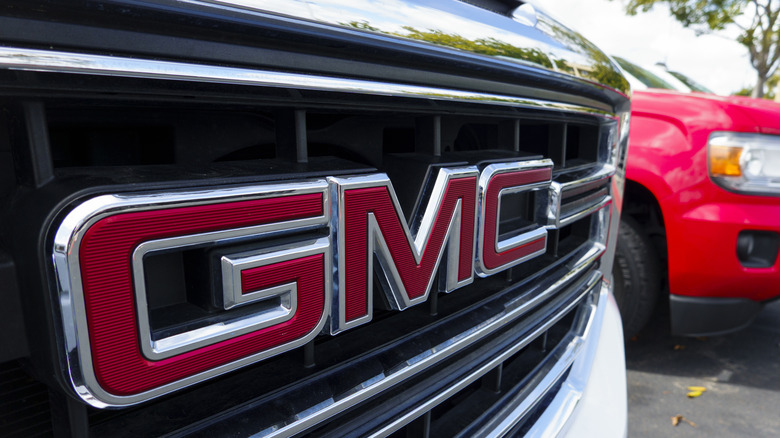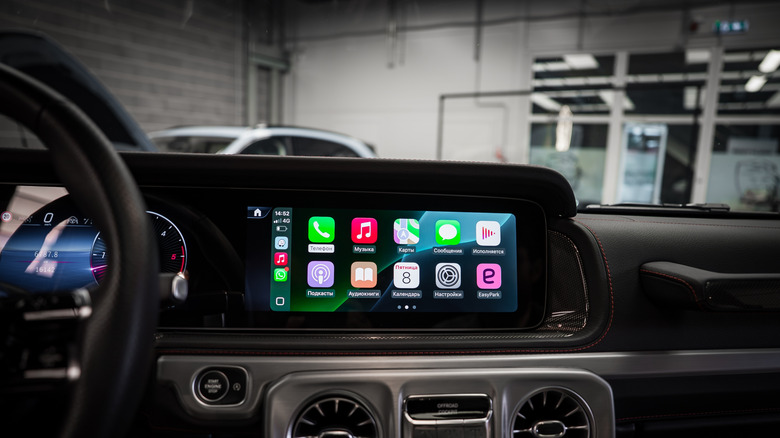GM's Removing CarPlay From All Its New Cars, Not Just EVs - Here's What It's Offering Instead
The auto industry is in an odd spot right now. On one hand, we have Google and Apple making advancements to their automobile software stack, such as bringing Gemini into Android Auto and setting the stage for a next-gen experience with CarPlay Ultra. But it appears that carmakers are not entirely sold on third-party innovations and want to focus on their own stack. GM is the latest label to join the ranks of brands that are ditching CarPlay and Android Auto, following in the footsteps of Rivian and Tesla. Two years ago, GM told Slashgear that it was yanking off CarPlay and Android Auto from its electric cars in favor of an in-house interface.
Now, the company plans to do the same for its entire portfolio moving ahead — EVs and gas guzzlers alike. In a Decoder interview, GM Chief Product Officer Sterling Anderson gave a rather curious explanation behind the decision. He gave the example of the Apple ecosystem, where you can technically mirror the iPhone's entire UI on a MacBook, but users don't do it, because they can handle tasks like email on the superior screen of a MacBook, with better speakers and a more robust input method.
"Is it in a car that has not only just laptop speakers, not only a laptop screen, but something better that can move you, and that can integrate with charging infrastructure, with Super Cruise availability on your maps, all of these other things? You are in a much more immersive environment that can do so many more things; why would you use the equivalent of a phone mirroring application on a laptop in your car?" Anderson was quoted as saying. GM's argument makes sense in the same vein that Rivian CEO RJ Scaringe explained the importance of a homogeneous software-hardware experience.
Bespoke AI is the future
By having end-to-end control over the software and hardware stack, a company can supposedly offer a more seamless experience, one that it can fix and improve at its own pace. Not all buyers are psyched about the decision to ditch CarPlay, but Scaringe has confirmed that Rivian won't change its trajectory. GM's arguments don't fall too far off from Rivian's reasoning. However, the GM is taking a more futuristic approach to developing a next-gen infotainment system for its upcoming slate of cars.
Surprisingly, Google is a part of that vision. Just a day ago, GM announced that its cars will let users access a conversational AI powered by Google Gemini that will let users "talk to your car as naturally as you would to a fellow passenger." Recently, Mercedes-Benz also inked a deal with Google and showcased an in-car Automotive AI Agent built atop Gemini. But in GM's case, the Gemini agent appears to be a stopgap solution, instead of the future.
The company is developing its own AI assistant foundation that will be tuned for each vehicle. "With your permission, it will be fine-tuned with your vehicle's intelligence and your personal preferences, all connected by OnStar," the carmaker said in a press statement.
The move is going to attract backlash, but it seems carmakers are now attracted to building a whole ecosystem around AI, just the way frontier labs like OpenAI are building a full ecosystem of apps, connectors, hardware, and a browser atop the ChatGPT foundations. Not every carmaker can afford that, but there's certainly a precedent. Chinese EV brands, including BYD, are racing to integrate DeepSeek AI assistant in their cars. Such is the market shift that even Tesla is putting DeepSeek and Doubao AI-powered voice controls in its electric cars sold in China.

